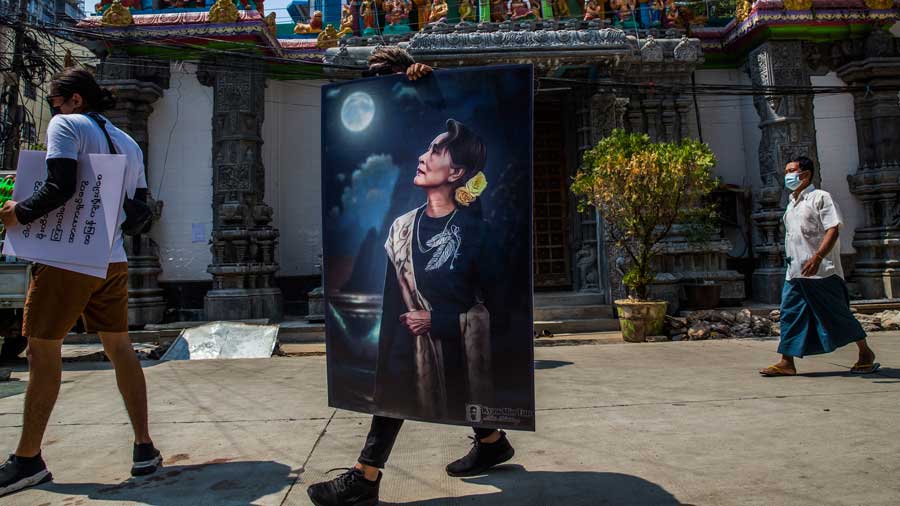Since the Taliban takeover in Afghanistan, the world’s attention, and that of India, have been focussed on that country. Global leaders are busy discussing Afghanistan. The nation was the top agenda at the recent deliberations in the United Nations General Assembly. The biggest casualty of this global attention on Afghanistan has been Myanmar and its democracy movement whose leaders fear that the world is forgetting their struggle to restore democracy.
Afghanistan and Myanmar hold substantial geopolitical and geo-economic significance for India. The Taliban are seeking Chinese support to legitimize their forced takeover; the military junta in Myanmar also depends on Chinese support to not only defend its coup but also its atrocities on the Muslim Rohingyas in Rakhine.
If India fears Chinese penetration into Afghanistan with Pakistan’s assistance can undermine New Delhi’s strategic and diplomatic interests, it should also worry about the all-pervading Chinese influence on Myanmar.
Just as Afghanistan holds the key to India’s outreach to Central Asia, Myanmar holds the key to the success of India’s ‘Act East’ policy. If the Taliban’s triumph can heighten separatist violence in Kashmir, an unstable Myanmar, with the breakdown of ceasefires between the government and the ethnic rebel armies, can spike armed separatism in India’s Northeast.
India has invested millions in development projects in both Afghanistan and Myanmar. The Chabahar port in Iran is being developed by India to reach Central Asia through Afghanistan bypassing Pakistan. Sittwe port in Myanmar’s Rakhine coast is not only part of the ambitious Kaladan Multi-Modal Transit Transport Project to connect to Mizoram and the rest of Northeast but also integral to an initiative to connect to Japan’s Dawei special economic zone as an alternative to the China-Myanmar Economic Corridor.
If India’s interests in these two nations are so similar, why is the level of engagement so different? Maybe India is following the global cues. The UN General Assembly and the Security Council would continue to discuss Afghanistan, denouncing Taliban’s ‘victory’ in violation of the 2020 Doha accord. So why can’t the coup in Myanmar be accorded similar importance? Is the restoration of democracy in Myanmar less important than an inclusive government in Afghanistan?
Daw Zin Mar Aung, a close associate of Aung San Suu Kyi and the foreign minister of the National Unity Government of Myanmar that claims to be the legitimate elected government, made several key points during an interaction with this author over Zoom. She said that the NUG expects a strong, proactive Indian role in promoting the cause of democracy in Myanmar. The role, she said, should befit India’s stature as the world’s most populous democracy and as a major Asian power now helming the UN Security Council.
Indian policy on Myanmar, she added, is too defensive. India has backed the Asean initiative to find a solution but the NUG feels that India should take the initiative. Perhaps the NUG is worried that a number of Asean countries have a history of military rule and may not push the Burmese military too hard. The Western powers are backing the cause for democracy but they are too distant to make an impact. So it is India, the NUG feels, that should play a bigger role in democracy’s restoration in Myanmar, especially since peace and stability in Myanmar are crucial for India’s Act East policy. Daw Aung said that the NUG will welcome an Indian outreach involving consultation with major Burmese stakeholders that could establish an acceptable time frame for Myanmar’s return to democracy.
India’s fears of driving Myanmar’s military junta into China’s embrace are unfounded because the nation is already a Chinese surrogate. The expectations of cooperation for counter-insurgency operations against northeastern rebels have been belied by reports that the Tatmadaw is using these rebels against Burmese resistance groups.
India can ignore Myanmar and an engagement with its democracy movement at its own peril.
Subir Bhaumik is a former BBC correspondent











